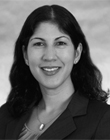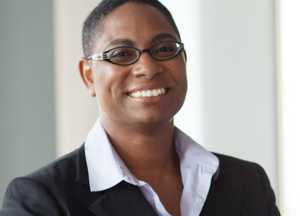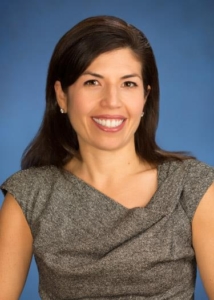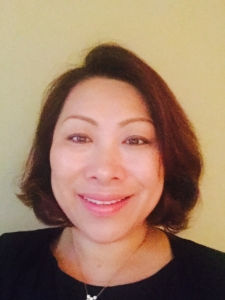 “When senior women get together, we tend to share our feelings about our work, but I encourage my peers to turn the support into action to help others,” says Frances Ni, a partner at Perella Weinberg Partners.
“When senior women get together, we tend to share our feelings about our work, but I encourage my peers to turn the support into action to help others,” says Frances Ni, a partner at Perella Weinberg Partners.
Throughout her career, mentoring others has been an important goal for Ni, given the support she herself has always received.
When Ni arrived in the United States from China, she didn’t have a clear focus for what she wanted to do so she did what many in a similar situation do: went back to school. Based on her exceptional scores, a professor recommended she enter an honors program, and she earned a full-time job in public accounting at PwC after an internship.
While she enjoyed her work auditing and conducting due diligence for M&A deals and partnering with clients, she decided that her public accounting career would benefit from a stint in the private sector to get an idea of that side of the business, which is how she began her career in asset management. She joined Perella Weinberg the year it launched in 2006, as one of its first employees, and in 2014 was named a partner.
A Talented Team
While she is proud of becoming a partner, she knows that her success has come in large part from a talented, cohesive team. “It’snot a one-man show, and I am proud that I have been able to recruit and retain such exceptional talent over the years,” she said.
Ni appreciates that the firm puts as much value on the back office as the front office, where revenue is generated and which is often the sole focus of many firms. In fact, the partner who nominated her said that when he raised her name, there were no objections. “Being named partner really made me feel all the hard work was worth it,” she says. “It’s the recognition and acknowledgement that I have achieved something important.”
Currently, one of Ni’s focus is working with the compliance team on understanding the industry’s changing regulatory environment and related reporting. She believes the industry is going through a fundamental transition. She finds her firm to be well positioned to weather what can be perceived as a costly and challenging change because they have been solid in the areas of regularly reporting. “I have heard others struggling with implementation but we have always run a tight ship,” she says. “While I believe that there will be challenges, higher entrance barrier and even consolidation in this business, it will ultimately come down to the strength of the organization.”
Advice from the Top
Ni knows that every step along her career path has made her a better professional. “While there are some things that I wish I had known earlier, looking back I am glad I didn’t do anything differently despite all the ups and downs. If I hadn’t made the mistakes, I wouldn’t have learned the lessons,” she says.
A lesson she thinks is vitally important for women to take to heart is to understand that they shouldn’t take criticism personally. “You can’t appear to be emotional,” she says. “Early on in my career I received valuable advice to always walk around with your head and chin up.”
Even with the strides that have been made, Ni sees thatwomen are underrepresented in the industry. Some are put off by what they perceive as a “boy’s club,” and others find that the intensity of the work, travel and hours take their toll.
She did not feel the effect of a “glass ceiling” at the beginning of her career. “I heard stories and warnings when I started in the industry, but at that time, I didn’t feel its impact. Maybe was a little bit ignorant and just jumped in,” she says. However, as she advanced, she started to see the pressure but believed the general environment, awareness and willingness to advance women in the industry “has improved compared to a decade ago.” She believes that if she focuses on the good, then she will find the good.
An Additional Layer for Networking Success
According to Ni, the professional women who preceded her and her peers pioneered a more female-friendly work place, and they owe it to them to continue.
“These women paved 2/3 of the way, but we need to do the rest,” Ni says. She believes that women can make a big difference by being more actively involved in networking with others, and to her that means going beyond inspirational speakers to something more actionable. While she knows that women can benefit from hearing about the path women took to achieve success, she thinks women need to go the extra step: how can women help each other beyond just sharing their stories.
Ni sees in her own company a focus on recruiting, retaining and developing women.
The firm started a Women’s Initiative a few years ago that is unique in its structure of inviting all the partners – male and female – to participate, which allows junior women to get to know the partners with whom they might not always interact in the course of a busy work day.
“This allows for more informal networking and a better working relationship in a situation where younger women might be intimidated by the partners,” Ni said.
Another way that Ni helps with retention of younger professionals is to allow them to take a course related to their position. “They appreciate that the firm wants to invest in them,” she said, adding that she is always dedicated to supporting her team with their professional and personal goals.
Outside the Office
With a husband who works in Boston, Ni focuses on quality time with her family whenever she can, which often includes travel. She is also very focused on education, having worked with Junior Achievement and other educational endeavors and is formulating plans to bridge the needs of schools in China and her current community to ensure that all children receive the education that will propel them to success.

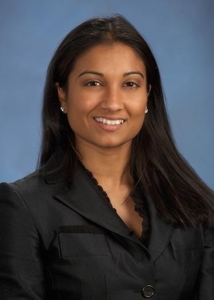
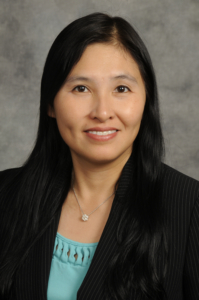
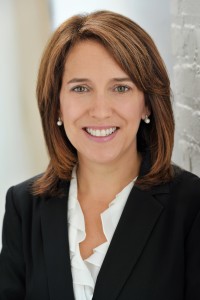
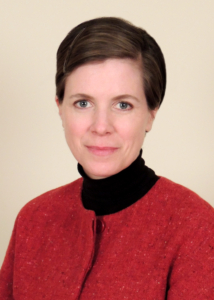
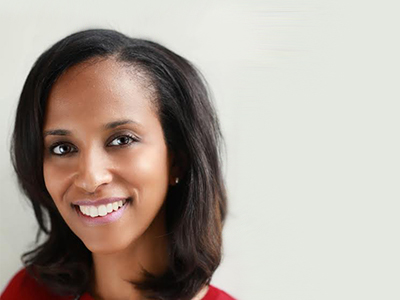 Seble Tareke-Williams describes her professional path as nontraditional, but each step has been vital to creating her current career, which combines her real estate investing acumen with her passion for community development.
Seble Tareke-Williams describes her professional path as nontraditional, but each step has been vital to creating her current career, which combines her real estate investing acumen with her passion for community development.